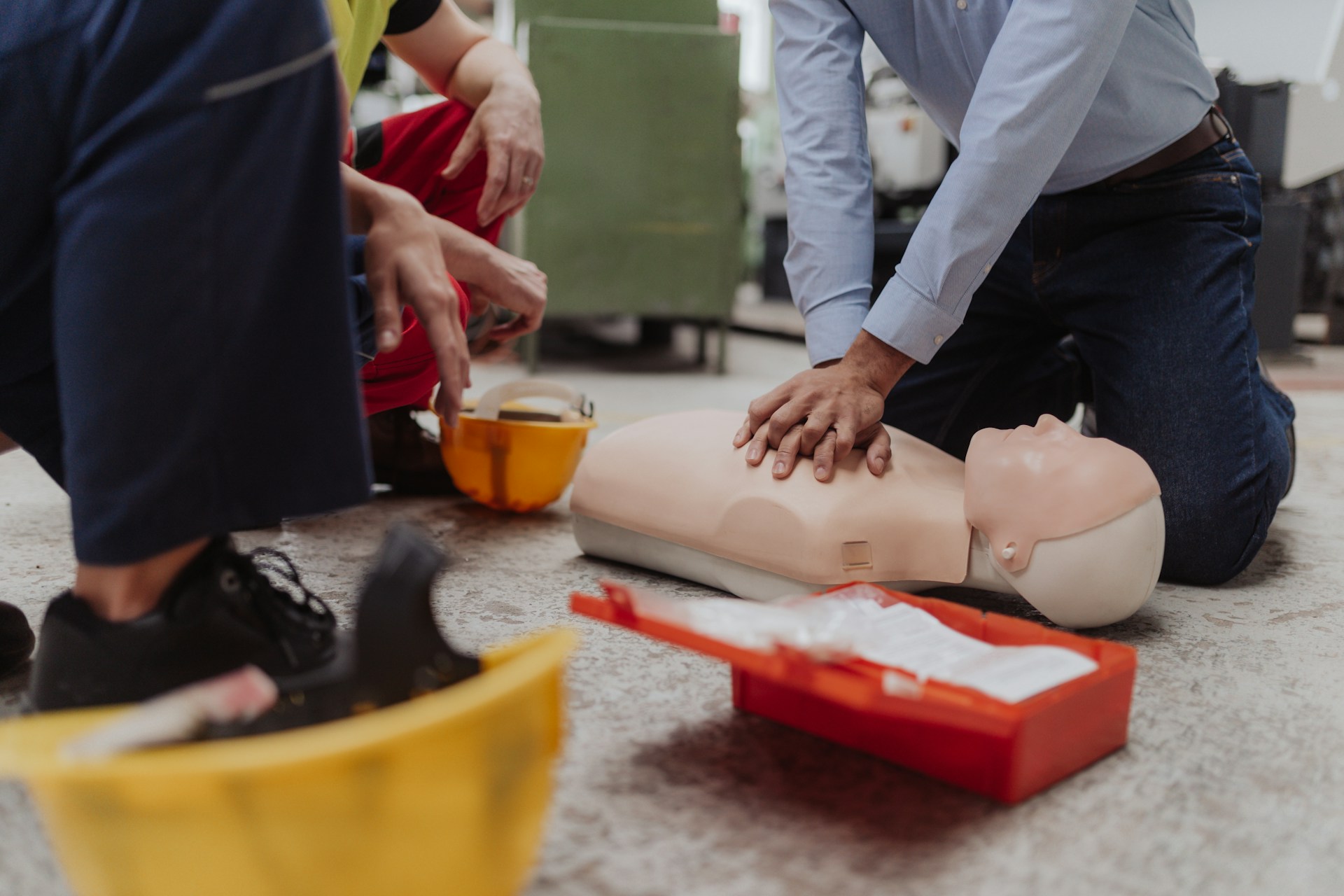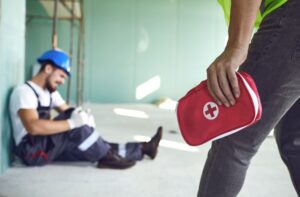Pre-hospital care is a critical step in managing health emergencies. It refers to the help given before the patient reaches a hospital, often making a difference in the patient’s outcome. Immediate actions can stabilise conditions, control bleeding, or even prevent shock, setting the stage for medical professionals to provide more advanced care later.
The swift response of those who first arrive on the scene is invaluable. First responders and trained individuals play a vital role in this process. Their ability to think clearly and act quickly can save precious minutes and lives. Understanding and practising pre-hospital care transforms you into an active participant in emergencies, ready to lend a hand when every second counts.
Equipping yourself with the right skills and knowledge in pre-hospital care ensures you are prepared for unexpected situations. This training empowers individuals to provide vital aid, creating a network of care beyond the confines of our healthcare facilities. Pre-hospital care is not just about acting fast; it’s about acting well to save lives before professional help arrives.
Understanding the Basics of Pre-Hospital Care
Pre-hospital care serves a crucial role in managing emergencies outside hospital facilities. It involves immediate assistance provided to individuals before they can reach a professional medical setting. The primary aim is to stabilise the patient’s condition and provide critical first aid to prevent deterioration. Acting swiftly in these situations often determines the patient’s chances of recovery and survival.
Quick action is vital before professional medical help arrives. During emergencies, each second counts. Performing basic procedures like CPR or stopping severe bleeding can maintain life functions until expert care is available. By applying these initial interventions, laypersons can prevent complications that may arise from delay.
First responders play a pivotal role in this process. They are the first people on the scene, often tasked with assessing the situation, managing immediate dangers, and caring for injured persons. Their actions set the foundation for further medical treatment. A prompt and well-coordinated response from these individuals or any trained bystander maximises the chances of a positive outcome. Recognising this importance highlights the need for more people to become trained in providing pre-hospital care.
Essential Skills for Effective Pre-Hospital Care
Several core skills are essential for effective pre-hospital care. These skills equip individuals to tackle various emergencies with confidence. Understanding and practising these can help everyone contribute to life-saving actions. Key skills include:
– Cardiopulmonary Resuscitation (CPR): Vital for reviving individuals whose hearts have stopped.
– Controlling Bleeding: Applying pressure or using dressings to slow blood loss.
– Managing Shock: Identifying and addressing shock symptoms to maintain circulation.
Recognising and prioritising different types of injuries is another fundamental aspect. Not all injuries are immediately apparent, and some, like internal bleeding, can be life-threatening. Assessing the severity and type of injury helps in deciding which first aid measure to apply first. This prioritisation ensures that life-threatening conditions receive immediate attention.
Communication plays a critical role in emergency scenarios. Clear and calm communication with emergency services and among bystanders facilitates the coordinated assistance needed. It also helps relay vital information quickly, improving the overall response efficiency. Keeping instructions simple and concise helps prevent misunderstandings during high-stress moments, ensuring that all efforts align smoothly for the best possible care.
Tools and Equipment for Pre-Hospital Care
Having the right tools and equipment can make all the difference in pre-hospital care. Basic equipment like first aid kits are crucial. They contain different items such as bandages, antiseptic wipes, and gauze that help in treating minor wounds immediately. A well-equipped first aid kit should be within easy reach at all times.
Defibrillators are vital for restarting the heart in the case of a sudden cardiac arrest. These devices are simple to use, thanks to clear instructions and voice prompts. Having access to a defibrillator can significantly improve survival rates. Additionally, oxygen masks can help patients who are struggling to breathe by ensuring they get the required oxygen until further medical help arrives.
Safety and effectiveness depend on knowing how to use this equipment properly. Regular training sessions can ensure that everyone knows how to handle these tools. Moreover, it is important to perform regular maintenance checks. This means inspecting equipment for any damage or expiration dates to ensure everything functions correctly when needed. By doing so, you minimise the risk of malfunction during emergencies, ensuring better patient outcomes.
Increasing Awareness and Training for Better Outcomes
Widespread training in pre-hospital care skills is essential for improving outcomes in emergency situations. It prepares more people to respond effectively when faced with a medical emergency. These skills are life-saving and simple to learn, making them accessible to everyone.
Community involvement in first aid certification programmes can further enhance public safety. By encouraging group workshops and events, more individuals can gain the knowledge they need. Local initiatives that focus on practical, hands-on experience can drive broader participation and interest in these critical skills.
Scenario-based training offers numerous benefits in preparing individuals for real-life emergencies. By simulating actual situations, participants gain confidence and learn how to make quick decisions under pressure. This type of training helps in building muscle memory, making response actions more instinctive. Feeling ready and capable is empowering. These benefits underline why regular and engaging training should be prioritised in all communities.
Conclusion
Pre-hospital care embodies the critical actions taken before reaching a hospital that can influence outcomes as much as hospital care itself. From having the necessary tools and skills to offering support through community involvement and improved safety knowledge, every part is important. Embracing the significance of these actions ensures we are well-prepared to act promptly. It also builds a safety net within communities to respond effectively to emergencies, easing the pressure on healthcare systems.
Understanding the impact of quick actions and the need for continuous learning guarantees that individuals are ready to respond efficiently, safeguarding health and saving lives. Investment in learning these skills is a powerful step in fostering a culture of preparedness and care.
At CR Training, we offer comprehensive pre hospital care courses that empower you with essential skills. Learn how to save lives and make a meaningful difference in emergencies. Join us in advancing your knowledge and mastering the steps that count most when time is of the essence. Contact us today to explore training opportunities and be part of a community dedicated to safety and proactive care.




